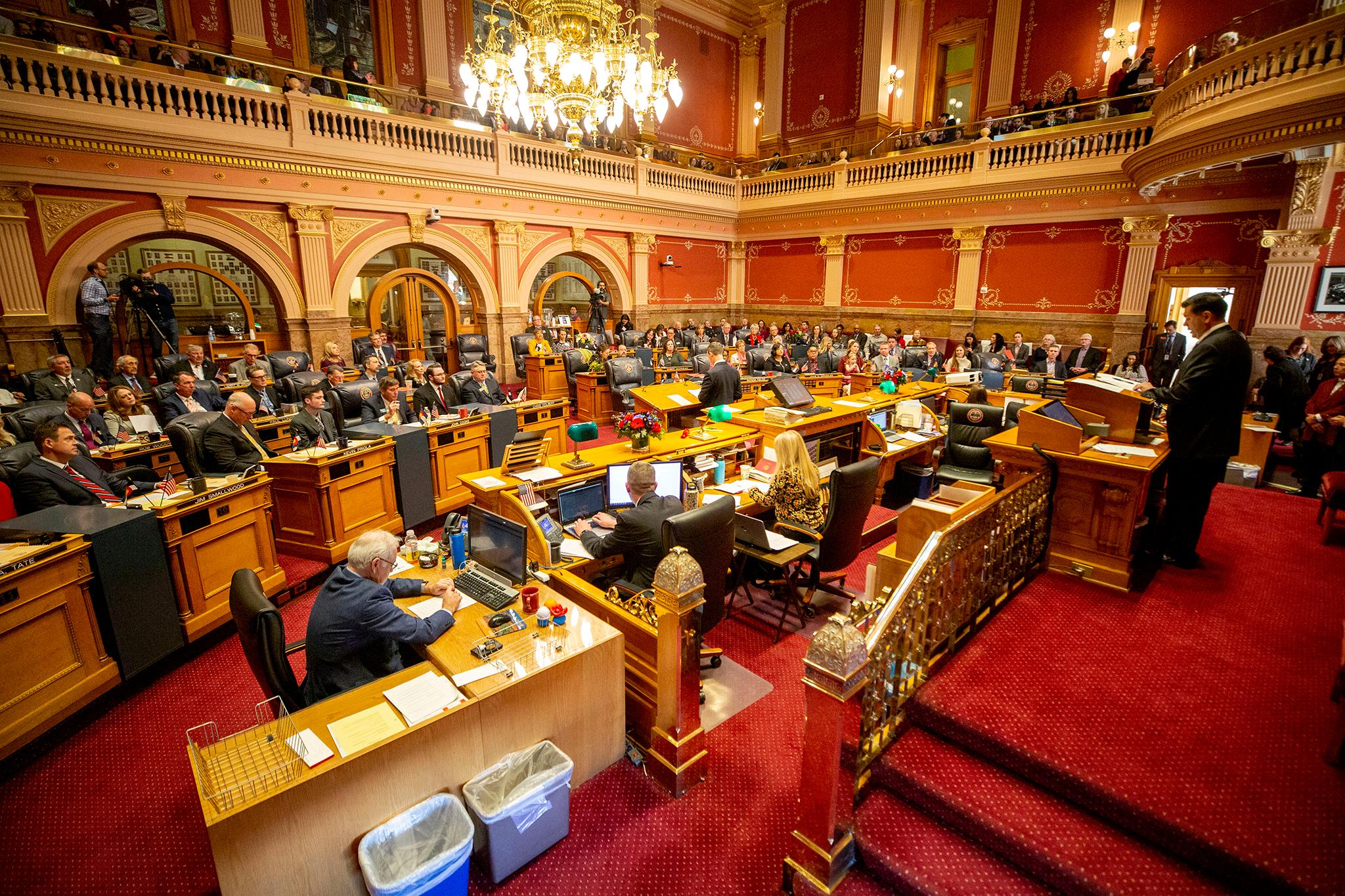
The state legislature will suspend its work for at least two weeks, amid the growing novel coronavirus pandemic.
Democratic and Republican leaders made the decision Friday. They plan to adjourn after a final day of wrap up work Saturday. When they eventually return will depend on conditions around the state.
This move comes even as the legislature’s biggest responsibility is still undone: the annual state budget.
In a normal year, the legislature’s powerful budget committee waits until mid-March to set the final numbers for the spending plan, based on the latest forecasts from government economists. Once the bill is introduced, it usually takes about two weeks to move through both chambers.
Along with the budget, lawmakers also need to pass the School Finance Act for next year, which divvies up education funding.
Gov. Jared Polis paved the way for this move by declaring a state of emergency early in the week. That brought the legislature's Joint rule 44 into effect, giving lawmakers more flexibility with the session schedule.
Normal rules require lawmakers to conclude their work after 120 consecutive days, which this year falls on May 6. Joint Rule 44 redefines that as 120 working days, making it possible for lawmakers to pause the session and resume it later, if necessary, although it's currently unclear whether the state constitution allows them to work past May 6. The rule also allows the legislature to meet somewhere other than the state capitol.
‘Ripe environment’ for illness
Lawmakers have been concerned about the potential dangers of coronavirus at the state capitol since the disease first started being reported in the country. The building is one of the state’s top tourist attractions, with about a quarter of a million people visiting annually.
Add to that the grueling hours of the legislative session, and the potential for dozens or hundreds of people coming from around the state to testify on the most hot-button bills, and state lawmakers may be a particularly vulnerable population.
"I have never washed my hands so much in my life. I was never cognizant of how many times I touched my face, but now I am," said Rep. Dominique Jackson, D-Denver, who is immunocompromised. "I never imagined that I would be dealing with this kind of pandemic in my lifetime. Never thought that anything like this would ever happen."
Ahead of the decision to suspend the session, Senate leaders had begun to ask lobbyists to contact lawmakers electronically, through email or text, rather than huddling with them outside of the Senate chambers.
Big policies put on hold
State lawmakers are already about halfway through the legislative session, but only have one major accomplishment to show for it: passing a bill to repeal the death penalty. Gov. Polis is expected to sign the bill into law at some point, although the coronavirus outbreak has made it unclear when that will happen.
At this point, most of Democrats’ top legislative priorities are still in progress. A measure that would create a public health insurance option got its first hearing just a day after Gov. Polis declared a state of emergency. A paid family leave bill has been the subject of endless behind-the-scenes wrangling and might struggle to make it across the finish line even in a normal session. A two-week delay for both those bills could doom their chances this year, although backers aren't giving up.
“[Coronavirus] is showing the exact need for paid leave," said Faith Winter, D-Westminster, who will sponsor the bill. "This isn't the only time workers have gone to work sick and infected others and we need to make sure that we have a healthy economy and healthy society. And that includes paid leave.”
In early March, Democrats also introduced a pair of gun safety bills. They’re also still working on legislation to deal with opioid addiction, housing, and health insurance, among other topics. How those bills will fair when the legislature resumes is unclear.









